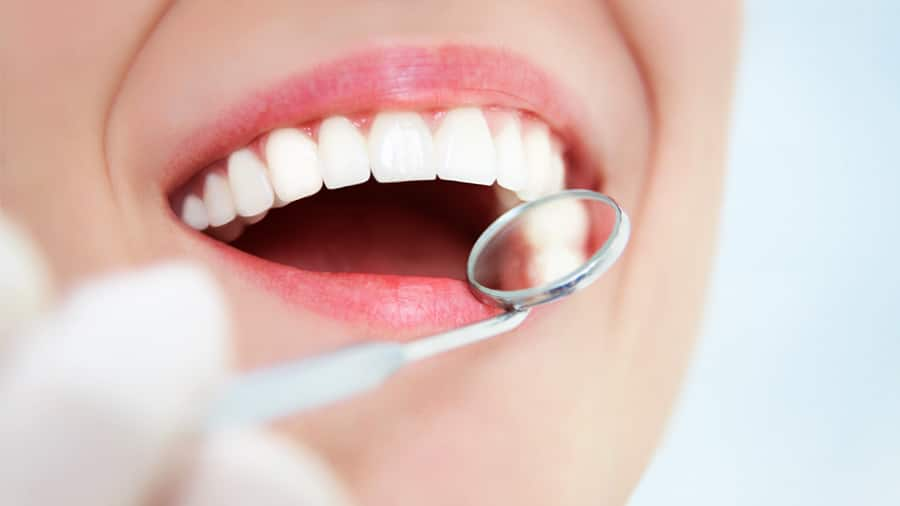What are Cavities?
Dental cavities, or dental caries, are tiny holes in your teeth varying from small to large. Cavities typically develop on the back teeth’s chewing surfaces and in the crevices between your teeth, where food particles get trapped. If cavities are left neglected, they can lead to tooth sensitivity, pain, tooth infections, and potentially even complete tooth loss. Therefore, cavities are something you need to avoid.
How Do Cavities Form?
Plaque, a sticky bacterial film, constantly forms on your teeth. The bacteria in plaque digest sugar from the foods and drinks you consume, producing acids that erode tooth enamel. Streptococcus mutans is the most common bacteria associated with the development of cavities. Continued acid exposure erodes and decays the enamel, marking the beginning of the cavity and even gum disease.
In the early stages, cavities may appear as small white spots on the surface of the teeth. If cavity removal is not done at the right time, the untreated cavity evolves into a darker brown or black spot as the enamel and dentin damage progresses.
Here are some risk factors for cavities:
Poor oral health habits
Frequent snacking on sugary foods or sugary drinks
Reduced saliva flow or dry mouth
Acidic diet
Deep tooth grooves
Old or worn dental work
Genetic predisposition
Can You Get Rid of Cavities in Two Days?
Despite online sources claiming you can naturally heal or get rid of cavities in two days, these promises are misleading. Unlike a wound on your skin, tooth enamel, once damaged, does not regenerate. The decay will worsen without professional intervention. It's good advice to be cautious of any source claiming cavities can vanish in just two days and seek your dentist’s professional help.
Getting Rid of Cavities at Home
While there is no magic involved in instantly eliminating cavities at home, you can take steps to help slow their progression:
Incorporate mouth rinses with strong antibacterial properties into your oral hygiene routine to decrease harmful bacteria buildup. Mouthwash can help limit further acid damage.
Reduce your consumption of sugary, acidic foods that feed the bacteria that cause decay. Limit snacking and avoid items like soda, candy, and citrus.
Increase intake of tooth-supporting nutrients like vitamin D and calcium, either through diet or supplements. This strengthens your enamel.
Try oil pulling by swishing oils like coconut oil to have antimicrobial effects and potentially reduce bacteria.
These home remedies cannot fix a cavity. But they can slow down the decay process. To prevent and remove cavities from teeth, it's essential to always seek help from your healthcare professional.
Risks of Untreated Cavities
While small areas of enamel demineralization can sometimes undergo remineralization on their own early on, once an actual cavity forms, it will continue to worsen over time without professional treatment. As the cavity grows, you may experience increasing tooth sensitivity and pain.
Delaying dental treatment also raises your risk of developing a dental abscess, which is a pocket of pus caused by a bacterial infection inside the tooth's pulp. Abscesses cause severe throbbing pain, tooth sensitivity, swelling, and fever. The infection can even spread from the tooth to other facial areas. Seeking emergency dental care is essential if an abscess occurs.
Postponing cavity treatment can also lead to higher dental costs down the road. While a simple filling may repair a small cavity, larger cavities often require more complex and expensive procedures like root canals, crowns, or tooth extraction and replacement. Getting cavities filled early is always recommended.
How to Prevent Cavities
To prevent cavities, cut down on sugary foods like sodas and candies. Opt for refreshing water and healthier snacks like vegetables instead, and maintain good oral hygiene.
To maintain dental health:
Brush your teeth thoroughly at least twice a day for 2 minutes to clear away plaque before it causes decay. Be sure the toothbrush covers all tooth surfaces.
Floss once daily to clear food debris and plaque from between teeth and under the gumline, where cavities commonly start.
Use fluoride toothpaste to strengthen your teeth enamel against acid attacks. Fluoride helps reinforce your teeth.
Take regular dental checkups every 6 months for cleanings to remove built-up plaque and tartar and spot signs of early decay.
When to See a Dental Professional
If you notice signs of a tooth cavity, like tooth pain, sensitivity, and visible changes, consult your dentist immediately. Early detection simplifies treatment and prevents extensive damage. Waiting to seek professional help allows cavities to expand, putting you at risk for more complications. Schedule a dental appointment if you notice any of the following signs:
Tooth sensitivity to hot, cold, or sweet foods
Holes or pits in your teeth enamel
White, tan, brown, or black spots on your teeth
Changes to the shape or colour of your teeth
See your oral care professional right away if you experience:
Lingering toothaches or throbbing pain in one or more teeth
Tooth sensitivity to a temperature that lasts more than a few seconds
Swelling around your gums near the painful tooth
Routine dental cleanings and check-ups will allow your dental professional to look for early signs of pre-cavities and tooth decay to help you plan how to get rid of cavities. They may spot issues developing before you feel any discomfort. Do not delay your dental visit if you think you may have a cavity to maintain healthy teeth. The sooner cavities are treated, the less extensive and invasive the treatment options are.














